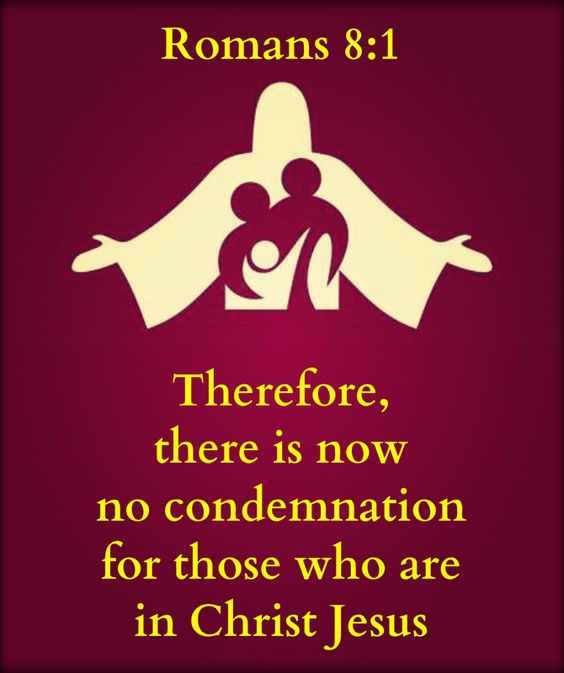No Condemnation (1)

1) “Verily, verily, I say unto you, He that heareth my word, and believeth on him that sent me, hath everlasting life, and shall not come into condemnation; but is passed from death unto life” (John 5:24). What exactly is Jesus saying in this verse? Echō (ekh’-o) is the Greek for ‘hath’, which means ‘to have, i.e. to hold; possess.’ Before one is endowed with the ‘possession’ of this asseveratory ‘everlasting life’, it is compulsory that the individual should pay attention to the Giver of the word. The word ‘heareth,’ akouō (ak-oo’-o) means: ‘to give ear – to teaching or a teacher.’ In this context, ‘heareth’ is tantamount to ‘obey’. Proper obedience to the word of God leads to being born again. The adverbial ‘not’ is ou (oo): ‘the absolute negative – no, not.’ When you study the phrase ‘shall not come’ it is interestingly an emphatic erchomai ou erchomai pointing out that ‘shall’ and ‘come’ are the same word erchomai (er’-khom-ahee): ‘to come or go.’

‘Condemnation’ is krisis (kree’-sis): separation; judgment; damnation; punishment; accusation; by extension a tribunal; by implication justice (specifically divine law).’ The verbal ‘passed’ is metabainō (met-ab-ah’-ee-no). It comes from meta (met-ah’): ‘with, after, behind: properly denoting accompaniment’ and basis (bas’-ece) origin: βαίνω bainō (to walk); a pace (“base”), that is, (by implication) the foot’. Metabainō, from the definitions of its origin, simply means: ‘to change place’. The ominous ‘death’ is thanatos (than’-at-os): ‘the death of the body; that separation (whether natural or violent) of the soul and the body by which the life on earth is ended; with the implied idea of future misery in hell.’ It is crystal clear that he that ‘heareth’ is not the One whose decision it is to do the metabainō. Jesus, whose word receives obedience, is the Lord who ‘changes the place’ of the redeemed. There is nothing required of the redeemed, according to this verse, to be kept intact in the place of Pauline ‘no condemnation’; there are no scriptural strings attached to security of the believer. Jesus takes infrangible care of the redeemed ‘change of place.
Of scriptural veridicality it is, as Pauline couch clarifies in Romans 3:23, that “all have sinned, and come short of the glory of God;” an unpaid for justification that comes by the grace that is in Christ Jesus, Whose Calvary sinless propitiatory blood has transformed the born again Christian and declaring our righteousness before God, having removed all our past sins, ergo, no condemnation fits the Christian, having been led by the Holy Spirit and firmly planted his feet in the righteousness of Christ eternally, here on earth and when he eventually comes before the throne of celestial Majesty, this is absolutely the work of the Trinity, lest any should burst out an air of boastfulness. Amen.

This salvific pursuit is strictly the responsibility of the Godhead. The word of God, preaching the substitutionary death of Jesus, one is left with whether to obey the Holy Spirit’s divine testification or not. Those who believe immediately become – by an abstruse wrought of the Holy Spirit – the children of God and the Holy Spirit enters their spirits, permanently, for spiritual rejuvenation; they open their mouths and out of them pour the filial “Abba, Father,” to God the Father. If Jehovah is the Eternal God, then the spiritual procreation is eternally a security. The Father gave His only begotten Son. The Son perfected the soteriological facticity. The Energizer, the Holy Spirit, ceaselessly energizes the willing hearts into the Kingdom of God. The Holy Spirit makes the cleansed spirit an eternal place of abode, making the hearts of recipients the holy progeny God’s Church forever. No condemnation comes to the redeemed. Amen.
Our sacrosanctity is borne out of our elevation to the dignified preferment of first fruits. “And not only they, but ourselves also, which have the firstfruits of the Spirit, even we ourselves groan within ourselves, waiting for the adoption, to wit, the redemption of our body” (Romans 8:23). ‘Firstfruit’ of this verse is aparchē (ap-ar-khay’): ‘a beginning of sacrifice, that is, the (Jewish) first fruit (figuratively).’ Biblical ‘first fruits’ speaks of superiority of excellence of human bestowal. No application of condemnation is suffered to point a finger of judgment on Christians. This, no doubt, makes Christianity too important to God and, therefore, indestructible by any act of Satanism. People do not make any effort to understand that the Godhead indwelling the born again is the celestial insurance that must keep protecting the Christian. He is no longer his old sinful self! The eternal life of Christ is what the spiritually justified, Adamic rejuvenation is now living. It is logically unbelievable but scripturally true.

Getting born again is a conscious effort on the part of an individual. Get born again. Say this sinner’s prayer.
“Dear heavenly Father, I come to You now in the name of Jesus Christ. I believe in my heart that Jesus is the Son of God. I believe that Jesus died on the cross for my sin. I believe that You raised Him from the dead. I confess with my mouth that Jesus is Lord and I receive Him now as my Lord and my Saviour. I give God all the glory. Amen!”
(…to be continued…)
Read part 2 here
Visits: 152


